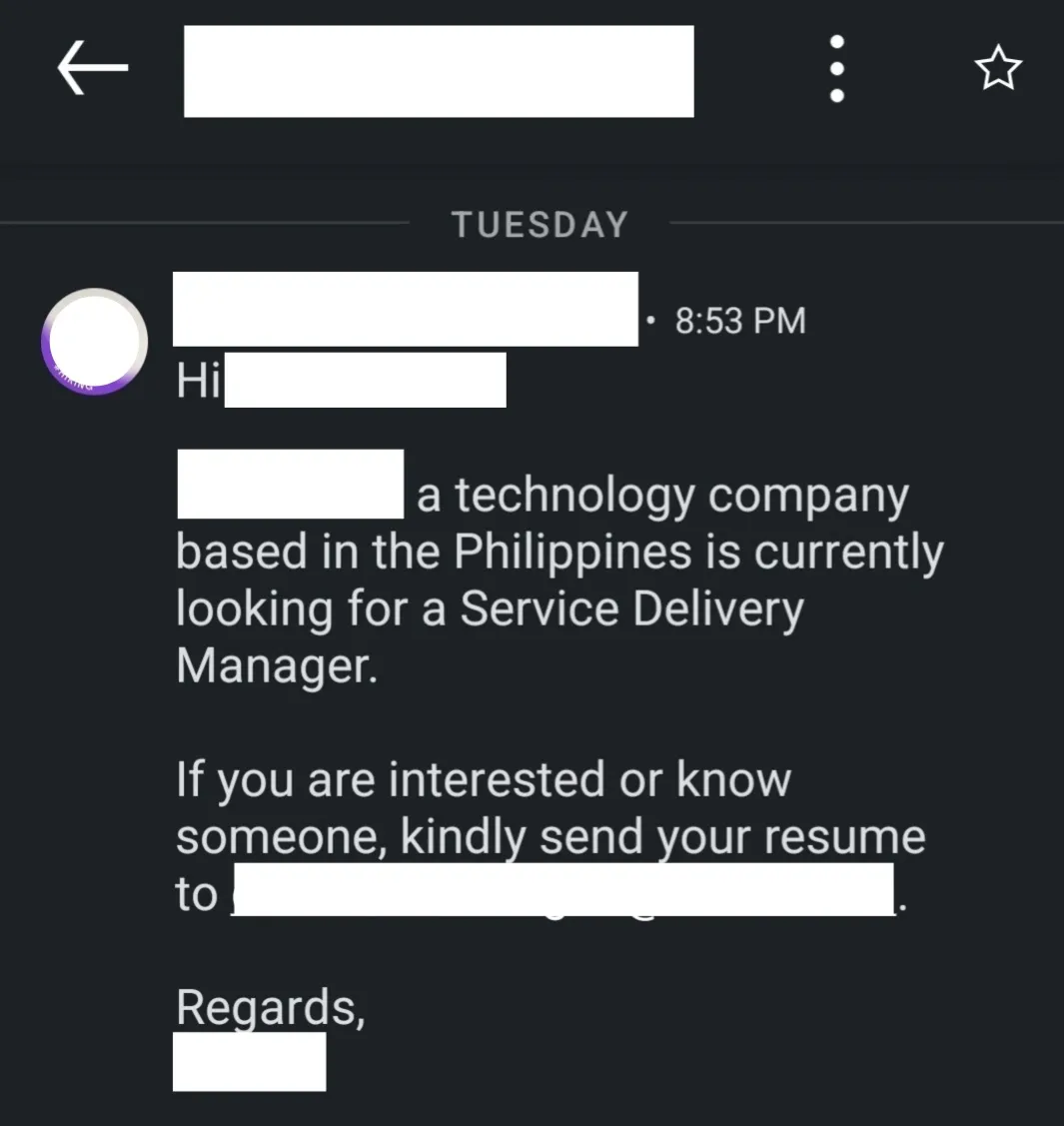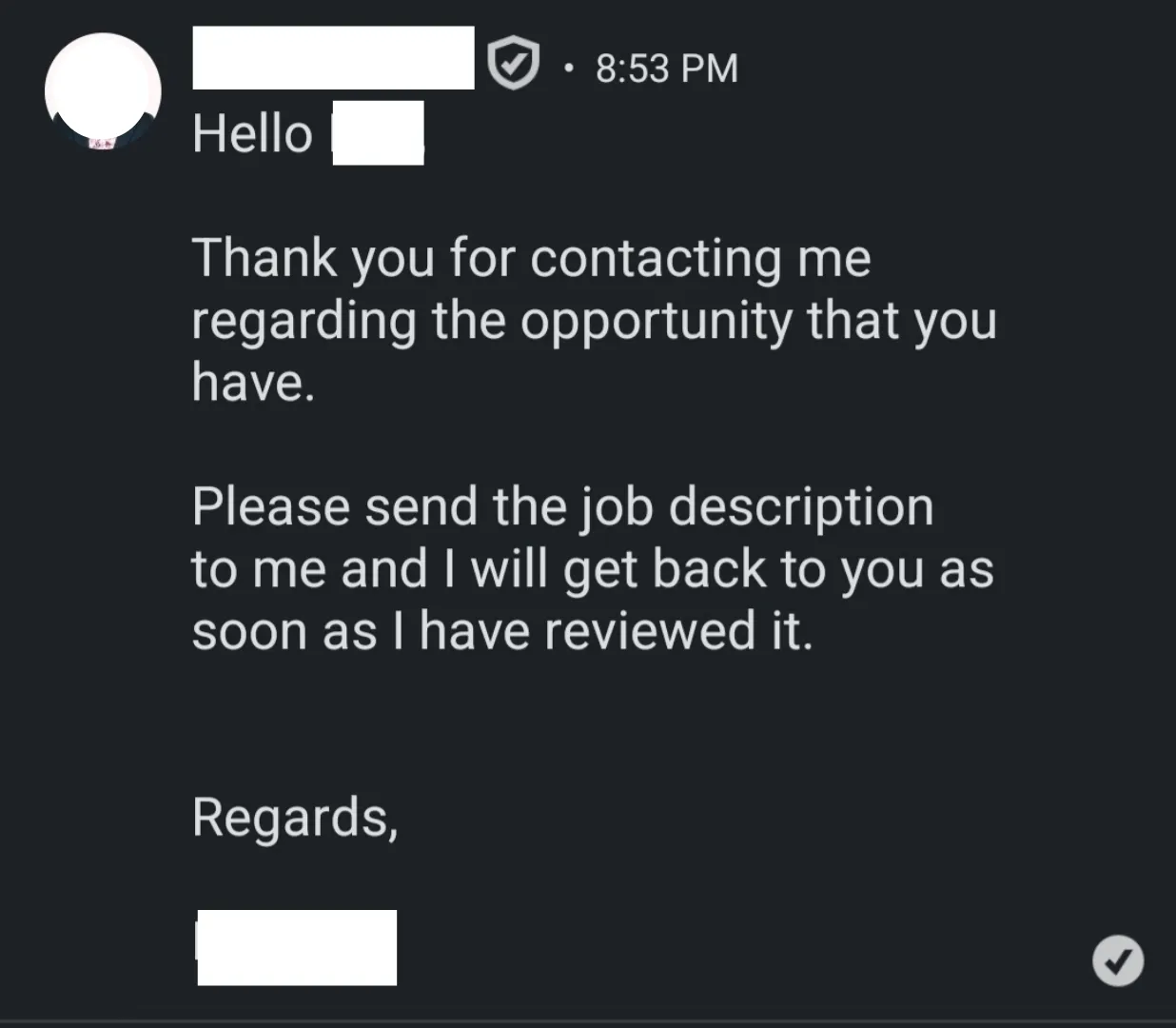Have you been ghosted by prospective employers because you asked for clarification about the position that they are eyeing you for? I experienced that countless times for different reasons. Today, I would talk about prospective employer ghosting because I asked for a job description.
I had a couple of instances when prospective employers contacted me through a social networking platform, present the role they need and ask me to submit an application without showing me the job description. When I asked for a job description, they will just disappear without a word. It is either they do not know what they were looking for or they are annoyed that I asked before I comply to what they asked me to do.
In my early days of corporate life, I had this fear of asking questions during interview. I felt like I am the one "needing" a job so I have to just bow to whatever the employer ask for. I wondered if it was because I did not have the enough experience, courage and wisdom to ask for clarifications or is it because of culture. After few years in my career, one of my former managers gave me a piece of advice when I told him that I was being pirated by one of our competitors. It was one of the pieces of advice that I carried all throughout my career journey. He said;
"Ask all clarifying questions that you have about the job and the benefits package that they are offering to you. Negotiate if you must because hiring is a negotiation process between two parties. It is not that employers will just feed what they want and you just absorb what they say."
That was when I realized that I am not the only one in need during hiring. I need a job as well as the employer also need the employee so the hiring process must be a two-way street.

The second time a prospective employer contacted me without giving a job description happened just last Tuesday, almost a week ago. When I asked for the job description, the recruiter no longer replied. I can think of two reasons why prospective employers turn into a ghost for this case.
- The prospective employer do not have a clear understanding of what they need so they do not have a job description. They just wished that they will throw the title into different job sites and people will bite it. I myself experienced this in one of the companies I worked with.
I had to take off secondary roles from my hand because of my growing primary responsibilities and accountabilities so I presented a case to create a new manager role. The top management approved it and one of our C-level officers have to hire that manager. However after a while, the job description was still not created because he said he was waiting for me. I was used as the excuse for the delay for my secondary roles which he himself should know because he is the hiring manager of that new position. It became apparent to me that he does not have the clear idea or vision of what he should want for that role. I had to post several questions on the table as a guide for him to answer and create the job description.
- The prospective employer is power-tripping. They do not want prospective employees to be asking questions or demanding anything because they think they are superior than the applicants. My experience about employer power tripping was when the recruiter immediately concluded the interview when I asked several questions. I do not have first-hand experience about ghosting because of lack of job description but my power tripping was the impression that came to mind. I felt like the employer thought I was so demanding when I haven't proven anything yet.

While job descriptions are not all-inclusive list of tasks, responsibilities or accountabilities in a role, I still do not apply to any position without having any idea of what I am expected to deliver. This is specially when I did not apply on my own and the employer is the one who initiates and invites me to apply.
Job descriptions are very basic and should be created from the very start of planning for the role. The hiring manager is responsible for creating the job description. Without the job description, the role is ambiguous and can cause future conflict between all parties involved.
Why else do you think would a prospective employer ignore their prospective applicants when former are asked for a job description?
No job description, no direction. That is a red flag.